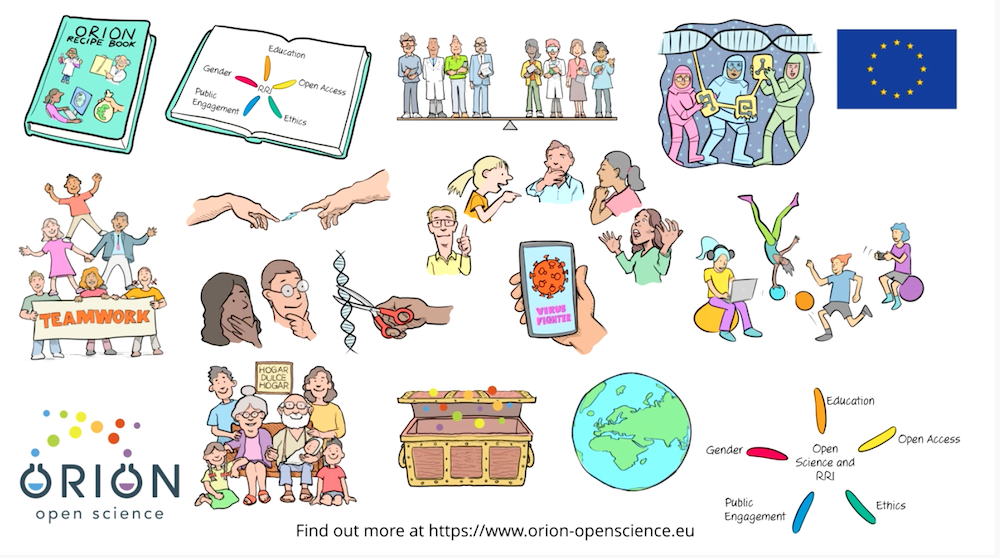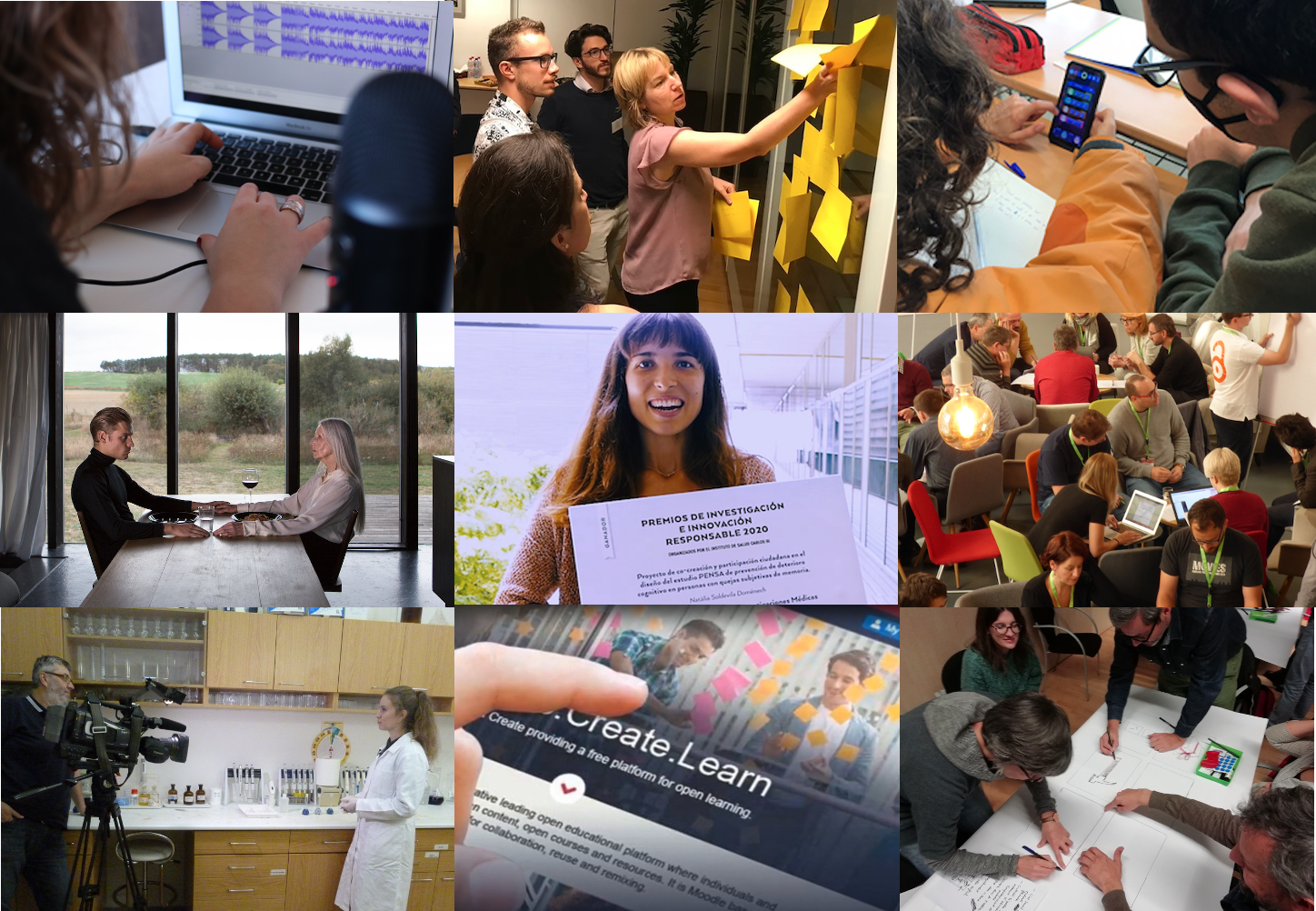Public dialogues, citizen science, game development and co-creation activities. For 4.5 years, VA (Public & Science) together with 8 European partners has been testing different ways to involve the public and other stakeholders in the research process. The aim of the EU ORION Open Science project was to investigate how research and funding organisations can ”open up” the way they fund and do research.

Openness and collaboration are fundamental aspects in both open science and responsible research and innovation (RRI). But how can they be implemented and embedded within different organisations?
“During the project, we tested a number of tools for incorporating the perspectives of end users and the public in the research process, e.g. by organising public dialogues on gene editing, launching citizen science projects, developing educational games and creating new arenas for dialogue and collaboration through art projects and co-creation activities,” said Maria Hagardt, who project managed VA’s participation in the ORION project.

The ORION partners have also developed new ways of incorporating various aspects of open science and RRI in research funding through prizes such as RRI Health Awards, regional calls for young researchers and collaborative projects.
“We are convinced that it is possible to open up the research process, to involve and discuss complex scientific methods with the public in order to increase knowledge and understanding of research and its role in society,” commented Maria Hagardt.
The project has also developed training for researchers and other stakeholders, as well as podcasts on open science and a MOOC course. All the tools for co-creation and training are freely available on the ORION website and Zenodo for anyone to reuse.
“During our final conference on 27-28 September, we presented a toolkit filled with resources and new ways of working that we have developed and now want to share with others,” said Maria Hagardt.
At the final conference, the results of a study on how attitudes towards open science have changed since the ORION project started in May 2017 were also presented. These were discussed along with ways to incorporate open science in guidelines and strategies at institutional, national and EU level, together with representatives of national and international organisations, including Rachel Bruce, UKRI; Kostas Glinos, European Commission; Ana Peršić, UNESCO: Cecilia Cabello Valdés, FECYT; and Karel Luyben, Delft University.
“Our ORION adventure has come to an end, but the journey towards open science and making research accessible to all has only just begun. It’s time to move from talk to implementation, ‘Let’s put Open Science into practice’,” declared Maria Hagardt.
Further information
The ORION website will continue to host all of the co-creation and training materials as well as activities, projects and deliverables undertaken by ORION. Here you can access the whole or parts of the ORION final conference too. Plus take a look at ORION’s collection of ‘inspiring stories’, which show the impact of ORION activities on participants, organisations and even countries.
